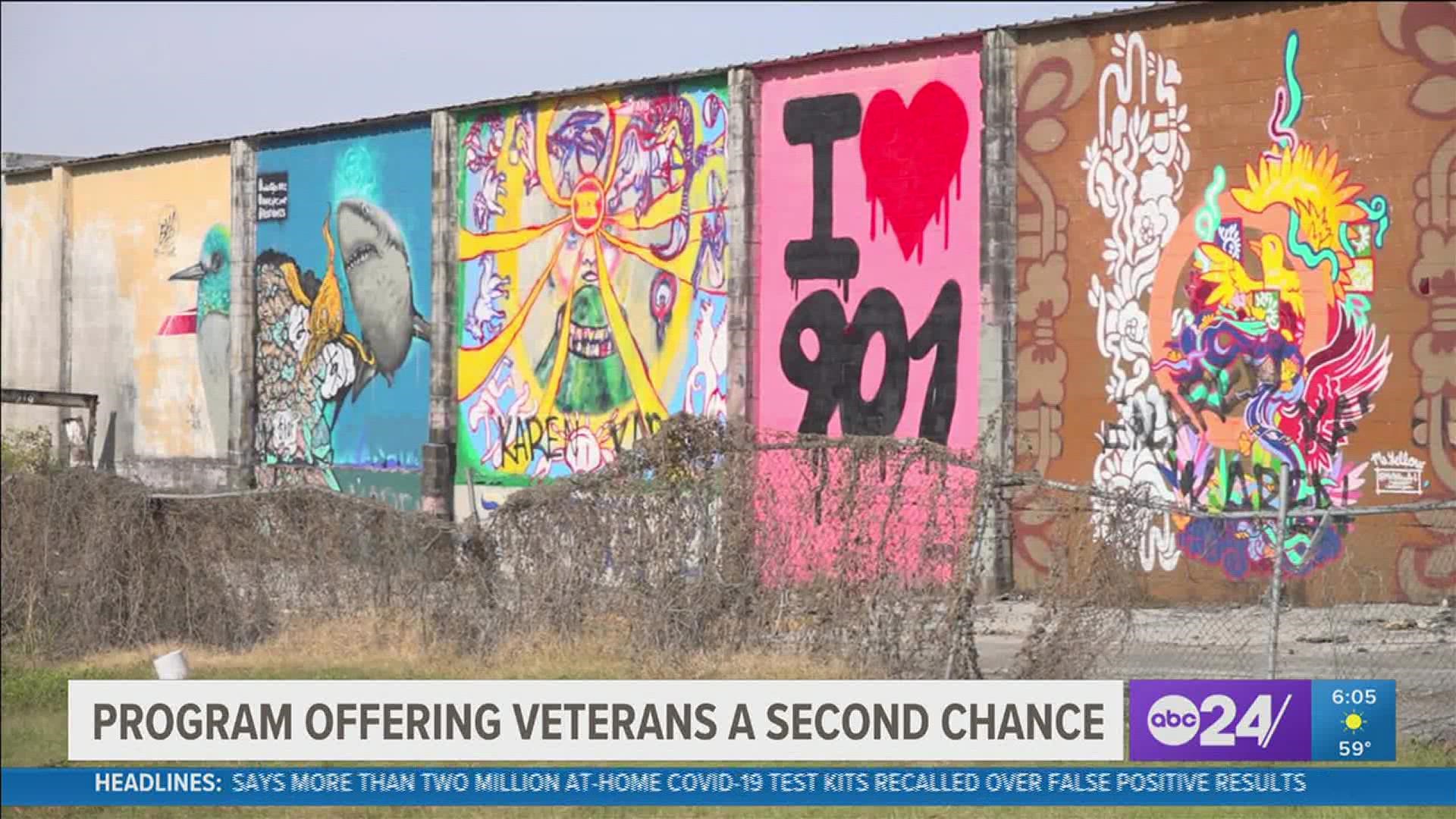MEMPHIS, Tenn. — After serving our country, many veterans face difficulties adjusting to civilian life.
That is why there are many resources to help make sure our service men and women get back on their feet and stay there.
The Shelby County’s Veterans Treatment Court keeping our heroes out of the criminal justice system.
“Am I my brother’s keeper?”
When it comes to our nation’s heroes, absolutely.
Shelby County is giving a second chance to those who first gave for us.
“There is this saying. We all bleed green. We’re brothers,” said David Yancy, US Army veteran.
They are a band of brothers who stand, serve, and sacrifice for our nation. Yancy is part of that band having served in the US Army for five years.
“When I got out the military, I suffered from a lot of trauma, past trauma, newer trauma. I didn’t really know how to deal with that. I kind of just started self-medicating with drugs and alcohol,” said Yancy.
He found himself in trouble with the law, facing about seven years in prison.
“I felt like a failure,” said Yancy.
Heroes are not failures.
“Shelby County Veterans Court is a specific program designed to identify and help veterans that have run afoul of the criminal justice system,” said Jerry Easter, Veterans Treatment Court Director.
Easter also served as a Marine.
“I tell them when they come in, you remember when you graduated boot camp, how you stood up straight, looked the world in the eye and ready to go? Our objective is to give you that same self-pride, that same self-confidence, that same self-respect,” said Easter.
It is a treatment program attacking issues such as addiction and mental health.
“Oftentimes, their experience in the military only exacerbates or makes worse the trauma that they may have suffered as a child,” said Easter.
Each veteran is partnered with a veteran mentor.
“They volunteer to be a friend and a guiding hand through the life necessities,” said Easter.
It is a light that flickered change in Yancy.
“The biggest thing is that I’ve been sober. I’ve been sober for almost six years,” said Yancy. “They helped me get a job... I started talking to the psychiatrist.”
The program even helped return Yancy to an old hobby you can see around Memphis.
“I rekindled that love for art... Thanks to veterans court for allowing me to look at that and bring that back into my life,” said Yancy.
“If we didn’t have this court, every veteran would simply go through the system, do his time or her time... and be back on the street with nothing,” said Easter.
Instead, the program aims for positive change.
“I’m at the point where like, okay, I do feel confident. I feel like, you know, I can be a success. I am a success,” said Yancy.
The Veterans Treatment Court has graduated 375 veterans and 90% have stayed out legal trouble.
If you’re interested in volunteering, click here.

